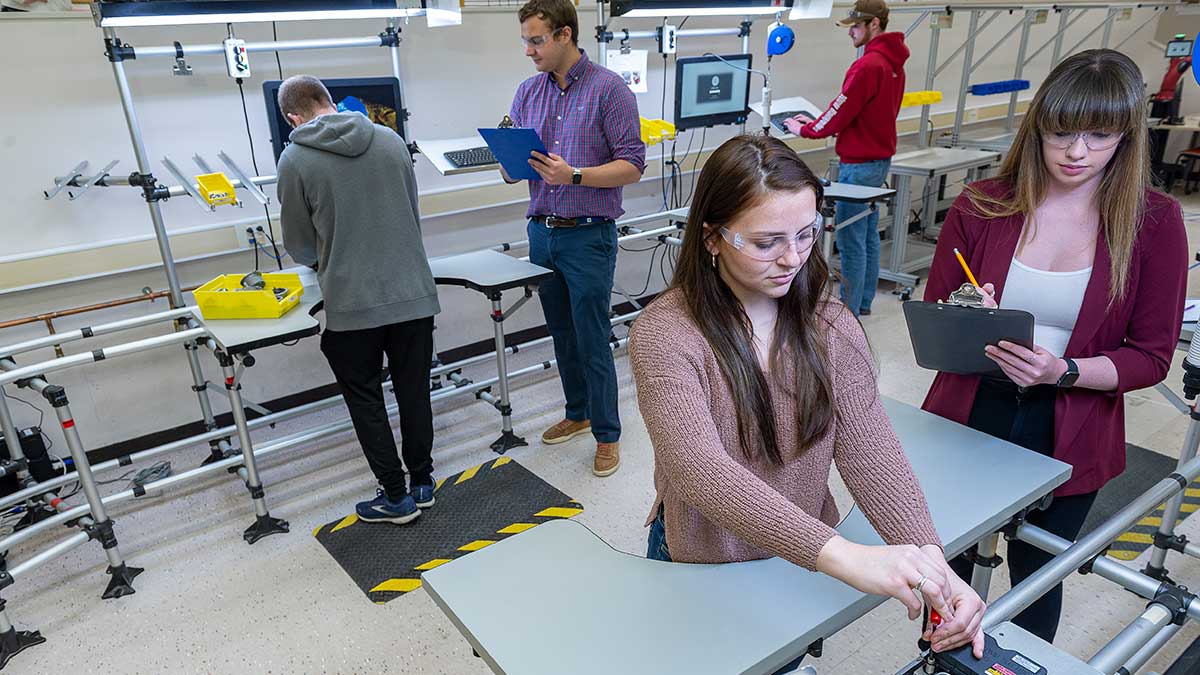Toyota Lab Drive

Toyota Production Systems Lab
K-12 Experience
The RIT Department of Industrial and Systems Engineering facilitates educational and career experiences between the university and K-12 youth and families. We created an interactive environment to educate and engage students on STEM problem solving as well as understand the career profession of Industrial Engineering.
Introduction to Industrial Engineering
Learn and experience how Industrial Engineers solve complex problems such as the assembly and testing of an international space station, develop ideas to make hospitals run more efficiently, and analyze data to reduce waiting time and improve the experience at theme parks.
You will learn how Industrial Engineers integrate materials, equipment, information, and/or people with an eye toward efficiency, quality, safety, sustainability, and cost. See how they bring all of the pieces of the system together to create innovative processes for innovative products.
Ergonomics and Sustainability
Welcome to an overview of ergonomics and learn how it is about designing for people. Discover how ergonomics is the science of fitting the workplace, product, or tools to the user’s needs to increase productivity and reduce discomfort.
Industrial Engineers are uniquely positioned to incorporate sustainability concepts. See how their focus is on systems, and in observing these systems at a high level, they can most effectively choose which parts of the systems to modify to produce desired results.
Lean Manufacturing
Come to know what Lean Manufacturing is about. Learn of the methodology that focuses on minimizing waste within manufacturing systems while maximizing productivity. Waste is seen as anything that customers do not believe adds value and are not willing to pay for. See how to identify waste and work to remove it.
Facilities Planning and Simulation
Discover how Industrial Engineers make changes to small spaces and large facilities so the work, people and information operate more efficiently and properly. You will also gain an understanding on how computer models of real world systems, known as Simulations, is used to help evaluate current state and future state of facilities.
Project Management and Leadership
This module will provide an understanding of the difference between managing activities and managing people. Begin to learn and develop skills of planning, organizing, and directing completion of activities as a project manager. Discover how successful leaders are innovative and creative to engage and inspire others to get projects completed.
Advanced Manufacturing
Learn how advanced manufacturing is the use of innovative technology to improve products or processes, with the significant technology being described as "advanced," "innovative," or "cutting edge." Advanced manufacturing industries integrate new innovative technologies in both products and processes.
3D Printing
Explore the process for making a physical object from a three-dimensional digital model, typically by laying down many successive thin layers of a material. It brings a digital object into its physical form by adding layer by layer of materials like plastics, composites or bio-materials to create objects that range in shape, size, rigidity and color.


